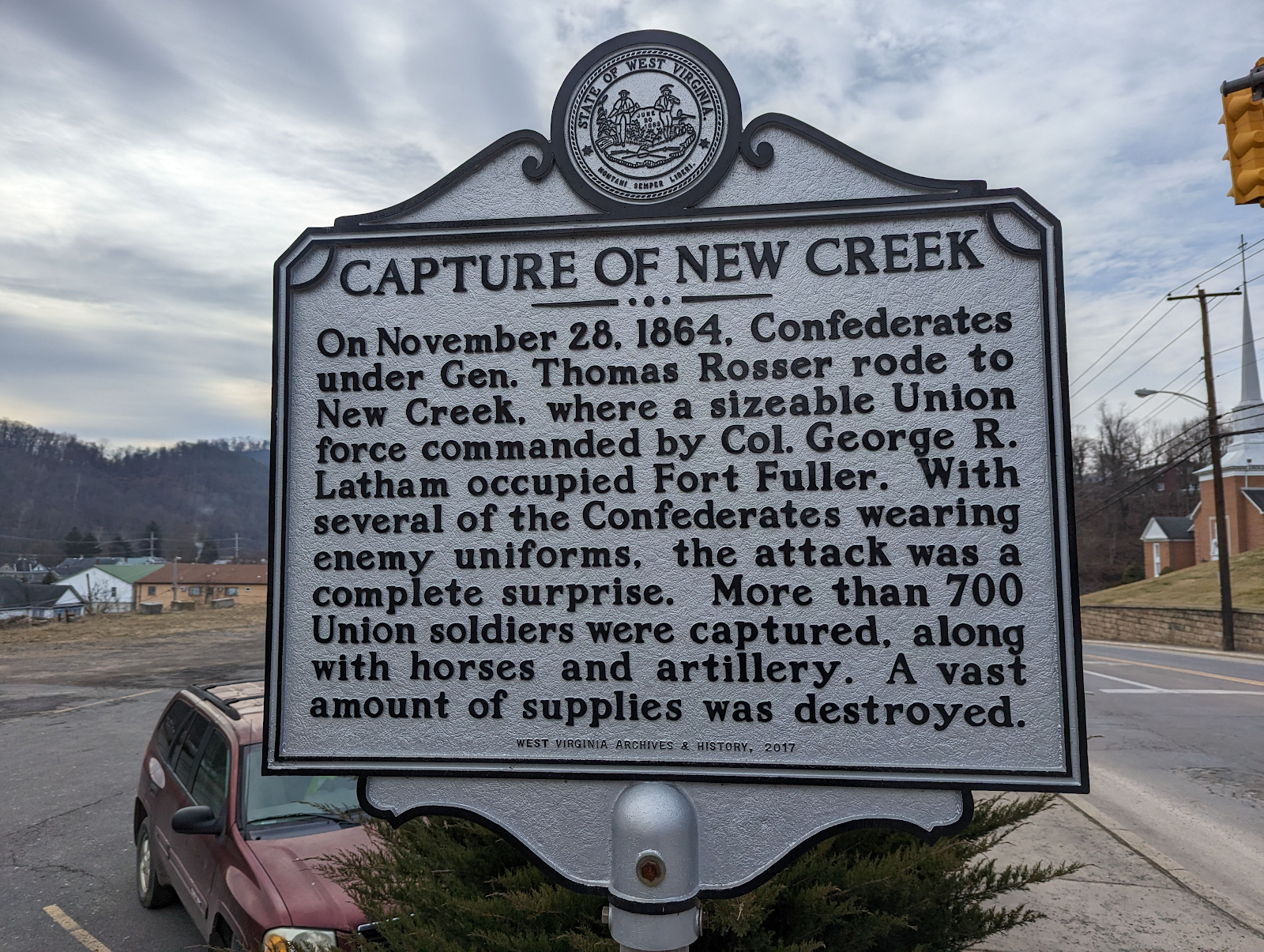Aug. 13, 1864 - Berryville Wagon Train Raid in VA; Irregular Warfare Boils Over in Moyock, NC
Aug. 13, 1864
Berryville Wagon Train Raid
near Winchester, VA
Maj. Gen. Philip H. Sheridan
vs.
Col. John Singleton Mosby (43rd Battalion Partisan Rangers)

*
Also spotted on a different trip to Dixie...
Meanwhile, at the same time in North Carolina....
August 13, 1864
Irregular Warfare Boils Over in Moyock, NC
Moyock, North Carolina, in Currituck County
* not Mynock
Berryville Wagon Train Raid
near Winchester, VA
Maj. Gen. Philip H. Sheridan
vs.
Col. John Singleton Mosby (43rd Battalion Partisan Rangers)

https://www.hmdb.org/m.asp?m=1785
"Just after dawn on 13 Aug. 1864, Col. John Singleton Mosby and 300 of his 43rd Battalion Partisan Rangers attacked the rear section of Maj. Gen. Philip H. Sheridan’s 600-vehicle wagon train here. The train, headed for Winchester, carried supplies for Sheridan’s cavalry. Mosby surprised and routed the Federals as they rested, cooked breakfast, and hitched their horses. Mosby’s men, losing only one killed and one mortally wounded, captured 200 beef cattle, 500–600 horses, 100 wagons, and 200 soldiers. The raid ended by 6:30 a.m. Berryville’s citizens including many small boys, helped burn the wagons after liberating their contents."
Also spotted on a different trip to Dixie...
Before 1798 Berryville was known as Battletown, a name that perhaps originated from a local tavern famous for its fistfights. The General assembly incorporated the town of Berryville on 15 Jan. 1798. Located at a major crossroads of the Shenandoah Valley and Northern Virginia, Berryville saw much military activity during the Civil War. On 13 Aug. 1864 Col. John S. Mosby attacked a Union supply train destined for Maj. Gen. Philip Sheridan’s troops at Winchester. Important nearby houses include Audley, the home of Nellie Custis, Washington’s stepgranddaughter, and Rosemont, the home of Gov. Harry Flood Byrd, Sr.
****************************************
August 13, 1864
Irregular Warfare Boils Over in Moyock, NC
Moyock, North Carolina, in Currituck County
* not Mynock
https://www.hmdb.org/m.asp?m=276257
 | |
| Just passing through TBH - got South Mills because it is 1861, but everything else will have to wait. |
"Shots Rang Out"
Irregular Warfare Devastated Moyock
By 1863, Moyock and the surrounding area were under Union control, but vicious guerrilla attacks continued unabated. Peaceable local farmers and merchants who wished to sell their goods in Norfolk, Va., suffered as a result. Union Gen. Henry M. Naglee tried to eliminate guerrilla activity and contraband smuggling. In July and August 1863, he issued orders to permit county residents to travel to and from Norfolk with passes from the Federal provost marshal. In return, he demanded that they do all they could to stop the smuggling and the partisan attacks.
On August 10, thirteen Currituck County residents, including several from Moyock, responded to Naglee's decree. They agreed with the general's goals but declared that "the citizens are not responsible for it, and can exercise no control whatever over those who are thus engaged." They concluded by affirming that "this candid statement of facts; hoping and believing that with a knowledge of them you will no longer hold us responsible for what we cannot possibly control."
While peaceful trade with Norfolk continued, partisan warfare and smuggling continued despite the efforts to the civilians and Union army. On August 13, 1864, county resident Alice Stephen wrote that "Robert Poyner [of Moyock] … was accosted in his front yard by two Yankee soldiers … two shots rang out and the Army officers fell dead. … They (men from the camp) set the village of Moyock on fire. They (the people) asked them to please not burn their cattle or their chickens or their pigs, but they burned everything."
Shingle Landing.
During the colonial era, Moyock was named Shingle Landing because roofing shingles made from massive cypress trees of the Dismal Swamp were shipped from there. The name Moyock became the official post office designation in 1857. – Courtesy Marion Welch Thorn






Comments
Post a Comment